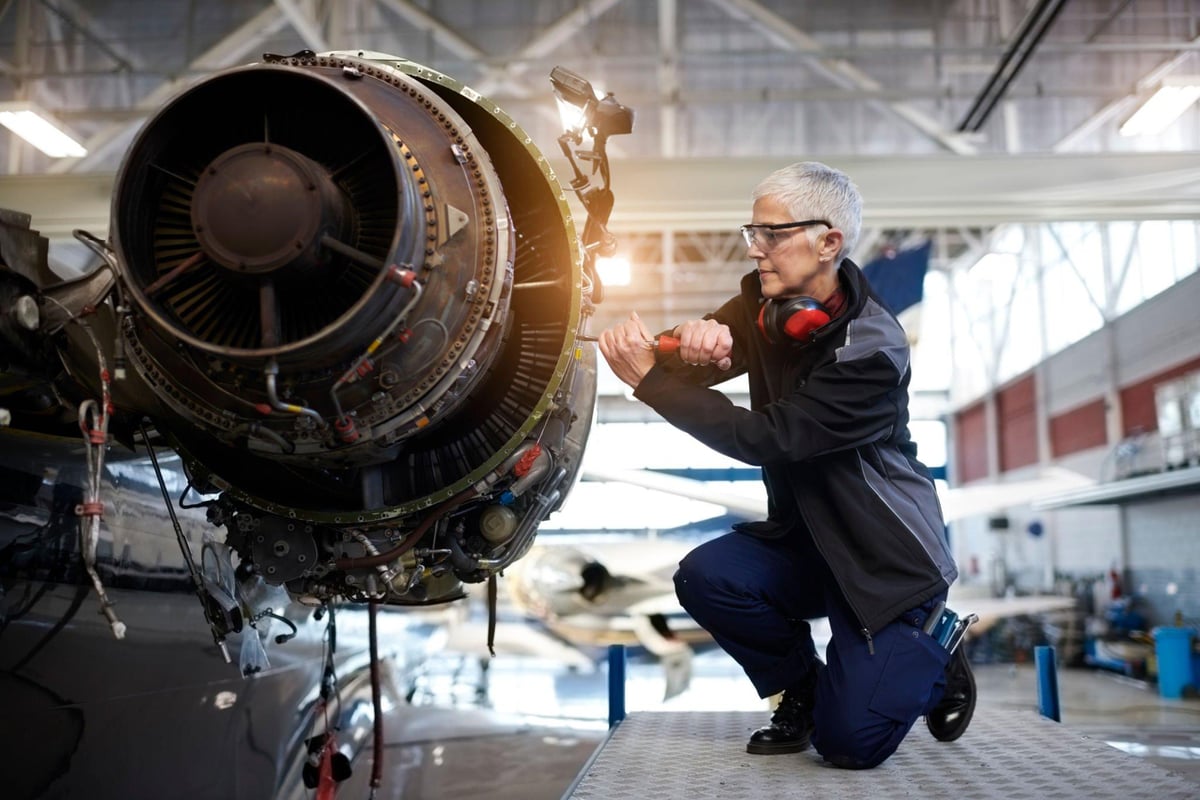Is Aviation Mechanic a Good Job? Pros and Cons

Are you considering a career as an aviation mechanic? This blog post will provide you with a comprehensive overview of the pros and cons of being an aviation mechanic, as well as the essential skills and qualifications required for this career. We will also discuss the career outlook for aviation mechanics and the factors you should consider before deciding on this career path.
Career Outlook for Aviation Mechanic
The career outlook for aviation mechanics is promising. According to the Bureau of Labor Statistics, employment of aircraft mechanics and service technicians is projected to grow 5 percent from 2020 to 2030, which is faster than the average for all occupations. The demand for aviation mechanics will be driven by the need to maintain and repair aging aircraft fleets and the increasing complexity of aircraft systems.
Factors to Consider Before Deciding on a Career as an Aviation Mechanic
Before committing to a career as an aviation mechanic, there are several factors you should consider:
-
Interest and Passion: Do you have a genuine interest in aircraft and aviation? A passion for the field will help you stay motivated and engaged in your work as an aviation mechanic.
-
Physical Fitness: As mentioned earlier, being an aviation mechanic can be physically demanding. Make sure you are physically fit and able to perform the physical tasks required in this occupation.
-
Work-Life Balance: The irregular working hours of aviation mechanics can impact your work-life balance. Consider whether you are willing to work nights, weekends, and holidays, and how this may affect your personal life.
-
Training and Education: Acquiring the necessary skills and qualifications for this career requires time and dedication. Ensure that you are willing to invest the effort and resources required to complete the training and obtain the necessary certifications.
Final Thoughts
Becoming an aviation mechanic can be a rewarding career choice for those who have a passion for aviation and a strong mechanical aptitude. The job stability, good pay, and opportunities for advancement make it an attractive option for many. However, it is important to consider the physical demands, irregular working hours, and high level of responsibility associated with this profession.
If you are interested in pursuing a career as an aviation mechanic, Dreambound can help you find the right training program. Dreambound is the largest platform for students to find vocational training programs, such as allied health or industrial trades. Their mission is to provide all the information students need to find the perfect class. Visit the Dreambound website to explore the available aviation mechanic training programs and take the first step towards your career in aviation maintenance.
Dreambound is your go-to for state-specific guides if you're starting in this field. And if you're curious about the process across different states, we've written several others as well.
Contemplating a transition in your career or exploring various professional paths? Dreambound has written comprehensive guides on nearly every type of program to aid you in your decision.

Sunshine is a member of the School Growth team at Dreambound, where she assists students and schools with their billing and onboarding needs. She is a licensed mechanical engineer. Outside of work, she enjoys road trips with her family, discovering cozy cafes, and exploring her love for art.




